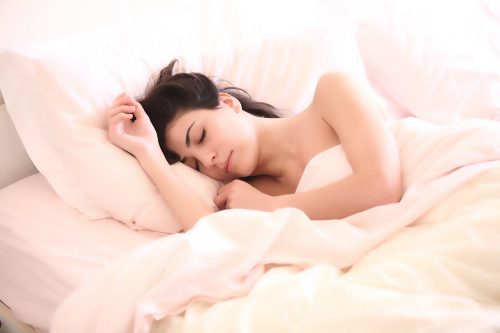Sleep Apnea & Bruxism

Having trouble getting a good night’s rest? Sleep apnea and bruxism are two sleep-related conditions that are sometimes experienced together. The first is a disorder in which breathing is interrupted during sleep, while the second is nighttime teeth grinding. And those who have been diagnosed with sleep apnea are more likely to also deal with bruxism.
If you suspect that you or a partner suffers from sleep apnea, please talk with your doctor about what you’re experiencing! Sleep apnea is a serious condition and may require specific types of treatment. In the meantime, there are some common factors you can consider to help improve your symptoms and decrease the likelihood of future complications.
Here are five factors that can affect your likelihood of developing sleep apnea:
1. Weight
If you’re overweight or obese, extra weight may cause the soft tissues in your mouth and throat to relax while you’re sleeping. That can block your airway and cause pauses in sleep throughout the night.
2. Alcohol
Drinking alcohol can also cause excessive relaxation of your throat muscles, putting you at risk for blocked airways and disruptions to sleep. It can also lead to dehydration and inflammation, which can further restrict breathing at night.
3. Smoking
A smoking habit can likewise cause blocked airways during sleep, due to increased inflammation and fluid retention. According to the Mayo Clinic, smokers are three times more likely to have obstructive sleep apnea than those who have never smoked.
4. Allergies
Problems with allergies (or other nasal congestion) can cause inflammation, congestion, and obstruction in your sinuses. Left untreated, these problems can also lead to blockages in the airway (or exacerbate existing restrictions) and disrupt sleep.
5. Demographics
Some factors are strictly out of our control: men, older adults, and those with a family history are all at a higher risk for suffering from sleep apnea. Talk to your family members about their experiences with the condition — and let them know if you’re experiencing these symptoms.
In addition to disruptions to sleep, sleep apnea can cause snoring, dry mouth, headaches, and — yes — bruxism. Bruxism itself can lead to poor sleep, damaged teeth, and jaw pain. But you can prevent these issues and improve your symptoms!
Talk to your doctor if you think you might be suffering from sleep apnea, and consider making some lifestyle or environment changes — like curbing your alcohol consumption or treating your allergies. A dental guard can also help you stop bruxing and may help alleviate symptoms of sleep apnea. Visit www.sleepright.com to learn more.



